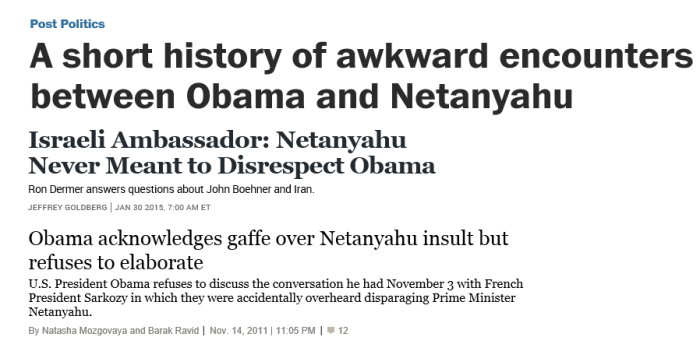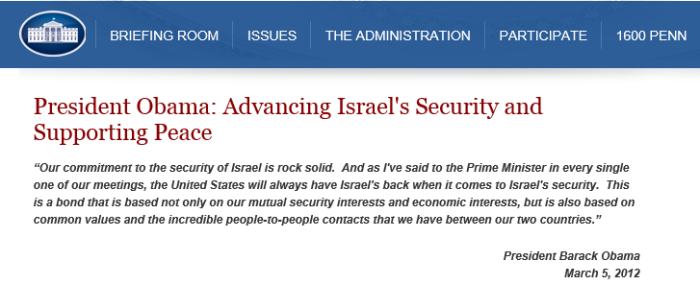
Among the myriad tactics employed by the establishment right in the US, a category which increasingly includes Democrats and Republicans, a favorite is what can be called the repositioning of the political center. Under this logic radical, militarist policies are normalized as legitimate responses to “imminent” threats by “liberals” while “conservatives” lambaste presidential decisions, no matter how egregious, as being too “soft on terror.” One of the more recent applications of this framework could be detected during the US bombing of Iraq and Syria. When President Obama decided to commence an air war against the Islamic State, a clear violation of international law, the dominant theme within elite media was that this was behavior emblematic of a “reluctant warrior.” “The Bible makes it clear that leadership is unpredictable: That the most powerful people often don’t get to choose what they themselves will do,” opined David Brooks in an embarrassingly effusive Op-Ed in the New York Times. “History is full of reluctant leaders, too. President Obama is the most recent.”
Arguments of this kind are extremely convenient in that they foreclose entirely peaceful alternatives while reducing the debate to how hard we should pummel the “enemy”, and not the much more consequential question of what legal or moral right we have to engage in such acts of aggression. Furthermore, this tactic obscures the consensus between both political factions that violence is justified, rendering critical analysis of this area of agreement more difficult. It therefore should come as no great surprise that this tactic has surfaced once again, this time in the context of the ongoing US-Israeli hostility to the Islamic Republic of Iran. Current debate has it that Israeli Prime Minister Benjamin Netanyahu is undermining President Obama’s Iran policy in his decision to deliver a speech before the US Congress promoting his more aggressive stance against Iran and its nuclear program. “White House officials remain furious with Netanyahu for failing to notify the administration about the address to Congress, a breach of diplomatic protocol,” reported John Hudson of Foreign Policy. New York Times columnist, and noted expert on everything Iranian, Roger Cohen echoed this sentiment, observing that the Israeli Prime Minister’s actions made Obama “furious, with cause,” adding, “He has been a firm supporter of Israel,” and “His patience with its leader is at an end” (my emphasis).
Exaggerations aside, Cohen’s assessment is worth further analysis in one crucial respect, namely his acknowledgement that Obama has been “a firm supporter of Israel”, an understatement when one takes a look at the diplomatic record. Numerous scholars, from Rashid Khalidi and Max Blumenthal to more mainstream commentators like Hillary Mann Leverett and Fawaz Gerges have been unambiguous in their acknowledgement that the Obama administration has been an uncritical advocate for Israeli militarism and diplomatic sabotage. Since November 2008, Israel has carried out three major military assaults against the Gaza Strip: Operation Cast Lead, Operation Pillar of Defense, and Operation Protective Edge. In all three cases Obama vigorously embraced the Israeli line that any display of Israeli terror, regardless of how many civilians it kills, falls under the rubric of “the right to self-defense.” During Operation Protective Edge the Obama administration went as far as blocking a UN inquiry into war crimes carried out in the Gaza Strip.
Writing on Obama’s policy with regard to Israel-Palestine, London School of Economics professor Fawaz Gerges stated “US politicians, including Obama, are trapped in a political culture that promotes conformity and groupthink on Israel and strongly discourages dissenting voices. After a promising start, the new president dared not to exert real pressure on Israel to stop the construction of settlements on the West Bank and to negotiate in good faith with the Palestinians.” While Gerges attributed this to a combination of Obama’s “timidity” and his being “trapped” by external forces beyond his control, other critics have been less generous. In his extensive review of US policy in Israel-Palestine Brokers of Deceit Columbia University professor Rashid Khalidi was unequivocal in his description of Obama as an unprincipled cheerleader for Israeli brutality:
“Crucially, since Barack Obama first stated his view on this topic, he has always accepted a constant, central element of Israel’s self-presentation: its victim status, to which it has always clung fiercely and aggressively. In his public statements he has always accepted as well a related proposition, dear in particular to the heart of Binyamin Netanyahu, the Israeli right wing, and its followers in the United States, but widely believed farther afield: that the state of Israel and the Israeli people, indeed the entire Jewish people, are in a state of perpetual existential danger.”
Incidentally, it is precisely this argument—that Israel is facing an existential threat from Iran—that Benjamin Netanyahu aims to invoke in his speech to Congress, a point conceded by Israeli ambassador Ron Dermer in an interview with The Atlantic’s Jeffrey Goldberg. Moreover, this is also the argument that various media organizations are laboring to portray as antagonistic (and not compatible) to Obama’s policies despite overwhelming evidence to the contrary. So the Obama administration’s decision to sale 55 “bunker buster” bombs to Israel in 2011, a move widely interpreted as a preparation to attack Iran’s underground nuclear facilities, does little, if anything, to interfere with the perception that Obama is opposed to Netanyahu’s policies. In fact, in some vital respects Obama’s policy vis-à-vis Iran has gone considerably beyond his “neoconservative” predecessors. As Flynt and Hillary Mann Leverett state in their authoritative study of US-Iran relations Going to Tehran “[the Obama administration] did nothing to rein in the anti-Iranian covert programs it inherited from its predecessor; indeed, leaked documents show that such programs (including ties to groups whose actions in Iran, had they been taken in Israel or many other countries, would be condemned as terrorism) intensified after Obama came in.”
More troubling, “the Obama administration used nuclear talks with Iran primarily as a way to set the stage for more coercive measures—tougher sanctions and, at some point, military strikes—and to bring international partners and the American public on board” (my emphasis). Another glaring illustration of just how supportive Obama is of the US-Israeli status quo in the region can be found in his decision to boycott a nuclear non-proliferation conference in Helsinki on the dubious pretext that the “political turmoil in the region and Iran’s defiant stance on non-proliferation,” made US participation impossible. When Israel’s attendance was requested the Obama administration denounced it as an act of “coercion.” Predictably, this blatant disregard for international law (as a signatory to the Non-Proliferation Treaty Iran has a legal right to enrich uranium) was misleadingly described in USA Today as indicative of “clashing visions of disarmament and non-proliferation efforts.” Perhaps this description is correct, if consciously escalating the threat of nuclear proliferation by shielding the one state with a nuclear monopoly in the Middle East (Israel) from any form of international scrutiny can be described as a “vision of disarmament and non-proliferation” (disarmament for “enemies” and proliferation for “allies”).

To the limited extent that there does exist any animosity between Prime Minister Netanyahu and President Obama it has virtually no impact on the substance of US-Israeli policy. In tactical terms, Obama’s resort to military force may be more calculated than Netanyahu’s but to read this as representative of a split between Obama’s position and the Israeli Prime Minister’s is to ignore these much larger areas of strategic and ideological overlap which, if left unchecked, will only add to the horrors currently enveloping the region. Much more significant, and thus underreported, is the growing divide between the US public and centers of power. Latest public opinion polls reveal a noticeable shift in American attitudes towards Israeli aggression. After Operation Protective Edge Gallup reported that 51% of Americans under 30 said that “Israel’s aggression in Gaza [was] unjustified.” Meanwhile, Pew reported “among 18-29 year olds, 29% blamed Israel for the current wave of violence, while 21% blamed Hamas.” These are the political transformations that would dominate headlines in a genuinely democratic society, not the highly personalized, gossipy squabbles between two war criminals, which may deserve lengthy analysis in the National Enquirer or the Globe but not anywhere where the fate of humanity should be a high priority.
Sources:
Leverett, Flynt Lawrence., and Hillary Mann. Leverett. Going to Tehran: Why the United States Must Come to Terms with the Islamic Republic of Iran. N.p.: n.p., n.d. Print.
Khalidi, Rashid. Brokers of Deceit: How the US Has Undermined Peace in the Middle East. N.p.: n.p., n.d. Print.
Gerges, Fawaz A. Obama and the Middle East: The End of America’s Moment? New York: Palgrave Macmillan, 2011. Print.
http://www.theguardian.com/world/julian-borger-global-security-blog/2011/sep/27/iran-nuclear-weapons
http://inthesetimes.com/article/14387/nuclear_iran_gravest_threat
http://www.usatoday.com/story/news/world/2012/11/11/mideast-nuke-talks-npt/1697215/
http://fair.org/blog/2013/09/27/nyt-columnist-you-cant-trust-shiites/
http://www.nytimes.com/2015/02/06/opinion/roger-cohen-israel-needs-a-grown-up.html?ref=opinion&_r=0